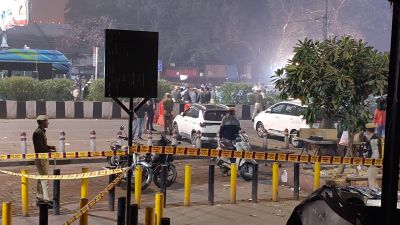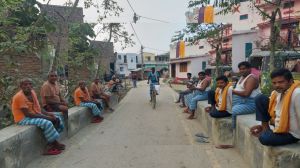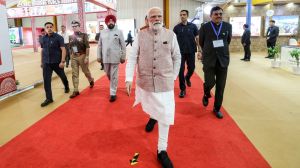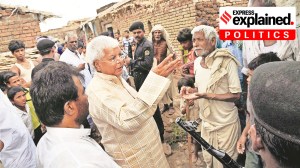Agenda fight averted at COP30, for now
Brazil proposed to hold informal backroom consultations on these discussion points to narrow down the differences and hold a stocktake meeting on Wednesday after that to decide what needed to be done with these.
 Simon Stiell, United Nations climate chief, second from left, listens as André Corrêa do Lago, COP30 president, second from right, speaks during a news conference at the COP30 U.N. Climate Summit, Monday, Nov. 10, 2025, in Belem, Brazil. (AP Photo)
Simon Stiell, United Nations climate chief, second from left, listens as André Corrêa do Lago, COP30 president, second from right, speaks during a news conference at the COP30 U.N. Climate Summit, Monday, Nov. 10, 2025, in Belem, Brazil. (AP Photo)Hosts Brazil managed to avoid agenda fights on the opening day of the COP30 climate meeting in Belem, convincing countries to put off some of the more contentious discussion points that they had proposed to be included in the official agenda of the two-week conference that began on Monday.
Brazil proposed to hold informal backroom consultations on these discussion points to narrow down the differences and hold a stocktake meeting on Wednesday after that to decide what needed to be done with these.
Among the four proposed agenda items which have been held back are two that India, and many other developing countries, have been pushing hard for — a discussion on Article 9.1 of the Paris Agreement that mandates that developed countries “shall provide” finance to developing nations, and the issue of trade measures like European Union’s Carbon Border Adjustment Mechanism (CBAM) which developing countries argue is discriminatory and violative of international trade laws.
A proposal by EU to have an agenda item on greater transparency in national climate data was also held back, as was the proposal of small island countries which wanted to discuss the adequacy of climate action plans submitted by large emitters.
There are sharp differences between countries on each of these discussion points, and attempts to raise them at meetings in the past have led to disruptions and delays. This was witnessed during the COP29 climate meeting in Baku, Azerbaijan, where countries like China and India made multiple attempts to raise the issue of CBAM, only to be stonewalled by the developed nations. Then, in June this year, at the annual sessional at Bonn, countries led by India had raised the issue of implementation of Article 9.1 of the Paris Agreement, arguing that this provision had been left unaddressed in the finance agreement reached in Baku last year.
Brazil, which, as hosts of the conference, is keen to ensure that COP30 is not disrupted by bitter fights and delivers a meaningful outcome, has been working behind the scenes for months to convince countries to raise their concerns without blocking the smooth conduct of the conference.
During his visits to India earlier this year, COP30 President Andre Correa do Lago had pleaded with the government not to press the issues of Article 9.1 and CBAM too far, while offering to create spaces within the conference in which these demands could be made.
The proposals to include discussions on Article 9.1 and CBAM in the official agenda was made by Bolivia on behalf of the Like Minded Developing Countries group, of which India is a member.
After an understanding reached with all the countries late on Sunday night, the official agenda was approved on Monday, without the inclusion of all the potentially problematic items.
The countries would be free to raise these issues at the different meetings in the two-week conference, but taking them off the official agenda means there is no compulsion to take a decision on these either way. This takes off the pressure to find a compromise language on these issues that would be agreeable to all. As of now, the positions of countries are so divergent that a common meeting ground is unachievable.
Wednesday’s stocktake meeting could be the forum where countries vent out their concerns and frustrations on these issues, and the matter could be left at that after everyone has had their say and made their point.
Fights over inclusion of certain agenda items at some recent COP meetings have resulted in official agenda being held back till the second week. Usually, the adoption of official agenda is the first task that is completed at these conference, like it happened in Belem.



- 01
- 02
- 03
- 04
- 05




























